Klabbes Bank - Protect the Forest (2012)
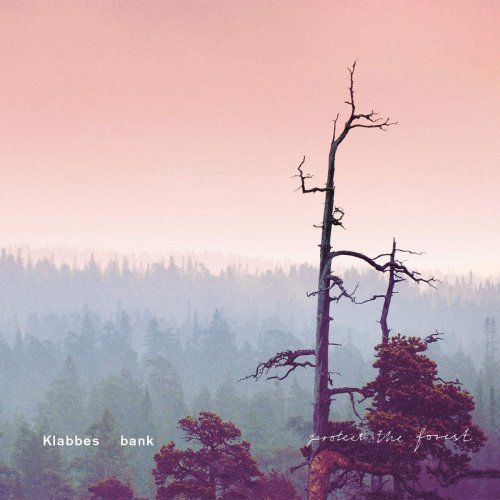
Artist: Klabbes Bank
Title: Protect the Forest
Year Of Release: 2012
Label: Hoob Jazz
Genre: Jazz-Rock, Fusion
Quality: FLAC (tracks+.cue, log, Artwork)
Total Time: 41:21
Total Size: 246 MB
WebSite: Album Preview
Tracklist:Title: Protect the Forest
Year Of Release: 2012
Label: Hoob Jazz
Genre: Jazz-Rock, Fusion
Quality: FLAC (tracks+.cue, log, Artwork)
Total Time: 41:21
Total Size: 246 MB
WebSite: Album Preview
01. Protect the Forest (4:17)
02. Listen to Kirppu (4:18)
03. Snalla (4:50)
04. My Name Is Sten (3:13)
05. Dalarna (4:08)
06. Karleken (4:30)
07. Berlin (3:42)
08. Scott & Melody (4:01)
09. Bli har (3:35)
10. 2005 (4:47)
Joel Wastberg - alto saxophone
Thomas Backman - alto saxophone, clarinets
Magnus Wiklund - trombone
Klas-Henrik Horngren - keyboards
Jacob Ohrvall - bass
Martin Ohman - drums, electronics
On their new release, Swedish ensemble Klabbes Bank breaks a bit from past form. Whereas previous recordings were tiny melodic bundles of heartbreak and sunshine, on Protect the Forest, the songs manifest with a sweeping grandeur and rhythmic intensity that take root with a heavy utilization of electronics and effects. This isn’t something that was necessarily frowned upon previously, but the use is more pronounced and widespread, and it’s the closest, by far, that the band has strayed to a Jazz-electronica fusion.
The album opens with the title-track, an expanse of wide open plains of percussion. A diffuse melody that’s perceived more than heard. Trombone punches out its general shape atop an immense wave of drums, bass, and effects. Alto saxophone squeals out a response from deep within the rhythmic embrace.
“Listen to Kirppu” has a bounce and blip pattern, with electronic burns set against the the saxophone’s spritely dance steps and quick trombone jabs. It permanently etches into place the new direction this ensemble is taking. And “Snalla” further solidifies this fact. It breaks into the kind of melodic ingenuity that Klabbes Bank is so good at… simple, yet powerful statements. But on the new album, brass & woodwind lyricism is bolstered by a thumping drum and electronic pulse.
“My Name is Sten” is a jaunty tune, with bass clarinet and piano twirling around with sax taking a spin at the opposite end. Percussion bridges the gap. Unfortunately for this tune, it’s accompanied by an electronic beep not unlike an early morning alarm clock, and its repetition throughout the song detracts from nifty melodic and rhythmic development that elevates the song up to a more boisterous level. It drowns the alarm clock out, but it’s unfortunate it had to come to that.
“Dalarna” gets the album back on track. A moody piece with a cinematic flair. A persistent snare creates the backdrop for a blanket of harmony between saxes, trombone, and keys. This is more like the Klabbes Bank of old, and it’s no surprise that this is one of the album’s stronger tracks. The harmonic development is a surging tide, building up gradually like a flood clearing the shoreline. Saxes blend into one another, and it’s only when they shift within the collective sound can any one instrument get picked out. Just beautiful.
“Karleken” is the best sign of promise for what might come next for this ensemble. It opens with bright electronic notes. Percussive blips and scratches accompany a strong melody. And then the song suddenly breaks into a thumping bass line, more electronic effects, and a tightly wound sax solo that runs through a series of aeronautic somersaults. The blend of organic instrument and electronic manipulation is a perfect fit.
“Berlin” is a lot like the old Klabbes Bank. It’s Klabbes Bank at their strongest. A resonant bass clarinet inches its way through a lullaby of a tune. Keys are the occasional flash of moonlight. And though more upbeat, “Bli har” echoes music of the past, too, with woodwinds curling tight patterns about one another, collectively weaving a melody that sounds simple because of the hard work that went into creating it.
“Scott & Melody” gets back to an upbeat demeanor. With a strong drumming presence and sax flitting along, the entire group breaks into a euphoric shout. When the song breaks down, it does it with more frenetic playing, volume up, and a burst of electric keys piercing the rhythmic veil.
“2005” ends the album with a gurgle and blip of electronics, musing sax and piano atop, a gentle drone up higher, a sense of things coming to a close. Soft and slow. And then suddenly, it leaps up and ends with a bang… yet still has the identity with which it all began.
And it’s that last point that will likely be the most intriguing quality to fans of Klabbes Bank… that they are taking this bold new direction, and yet the character and presence with which so many of their fans first latched onto their music is still there, evident in the New Sound. It’s the kind of change that makes following an artist’s career such an exciting endeavor. That’s what’s in play here, too.
The album opens with the title-track, an expanse of wide open plains of percussion. A diffuse melody that’s perceived more than heard. Trombone punches out its general shape atop an immense wave of drums, bass, and effects. Alto saxophone squeals out a response from deep within the rhythmic embrace.
“Listen to Kirppu” has a bounce and blip pattern, with electronic burns set against the the saxophone’s spritely dance steps and quick trombone jabs. It permanently etches into place the new direction this ensemble is taking. And “Snalla” further solidifies this fact. It breaks into the kind of melodic ingenuity that Klabbes Bank is so good at… simple, yet powerful statements. But on the new album, brass & woodwind lyricism is bolstered by a thumping drum and electronic pulse.
“My Name is Sten” is a jaunty tune, with bass clarinet and piano twirling around with sax taking a spin at the opposite end. Percussion bridges the gap. Unfortunately for this tune, it’s accompanied by an electronic beep not unlike an early morning alarm clock, and its repetition throughout the song detracts from nifty melodic and rhythmic development that elevates the song up to a more boisterous level. It drowns the alarm clock out, but it’s unfortunate it had to come to that.
“Dalarna” gets the album back on track. A moody piece with a cinematic flair. A persistent snare creates the backdrop for a blanket of harmony between saxes, trombone, and keys. This is more like the Klabbes Bank of old, and it’s no surprise that this is one of the album’s stronger tracks. The harmonic development is a surging tide, building up gradually like a flood clearing the shoreline. Saxes blend into one another, and it’s only when they shift within the collective sound can any one instrument get picked out. Just beautiful.
“Karleken” is the best sign of promise for what might come next for this ensemble. It opens with bright electronic notes. Percussive blips and scratches accompany a strong melody. And then the song suddenly breaks into a thumping bass line, more electronic effects, and a tightly wound sax solo that runs through a series of aeronautic somersaults. The blend of organic instrument and electronic manipulation is a perfect fit.
“Berlin” is a lot like the old Klabbes Bank. It’s Klabbes Bank at their strongest. A resonant bass clarinet inches its way through a lullaby of a tune. Keys are the occasional flash of moonlight. And though more upbeat, “Bli har” echoes music of the past, too, with woodwinds curling tight patterns about one another, collectively weaving a melody that sounds simple because of the hard work that went into creating it.
“Scott & Melody” gets back to an upbeat demeanor. With a strong drumming presence and sax flitting along, the entire group breaks into a euphoric shout. When the song breaks down, it does it with more frenetic playing, volume up, and a burst of electric keys piercing the rhythmic veil.
“2005” ends the album with a gurgle and blip of electronics, musing sax and piano atop, a gentle drone up higher, a sense of things coming to a close. Soft and slow. And then suddenly, it leaps up and ends with a bang… yet still has the identity with which it all began.
And it’s that last point that will likely be the most intriguing quality to fans of Klabbes Bank… that they are taking this bold new direction, and yet the character and presence with which so many of their fans first latched onto their music is still there, evident in the New Sound. It’s the kind of change that makes following an artist’s career such an exciting endeavor. That’s what’s in play here, too.
![Art Pepper - Everything Happens To Me: 1959 - Live At The Cellar (2026) [Hi-Res] Art Pepper - Everything Happens To Me: 1959 - Live At The Cellar (2026) [Hi-Res]](https://www.dibpic.com/uploads/posts/2026-02/1771405170_fcwg7jmt6mou1_600.jpg)
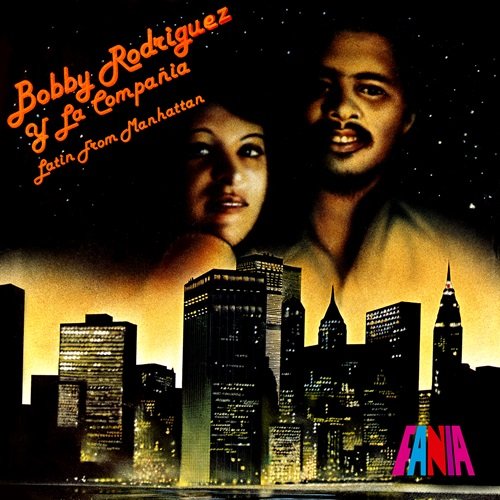
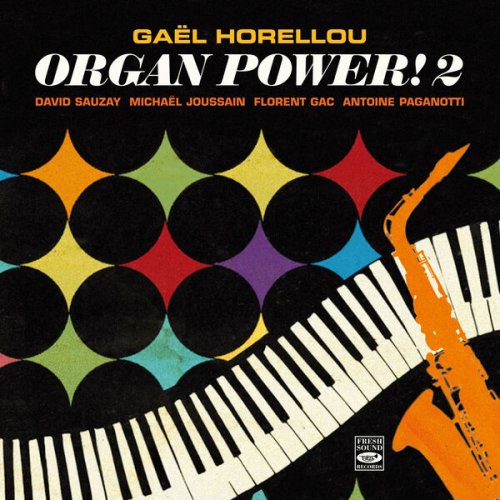
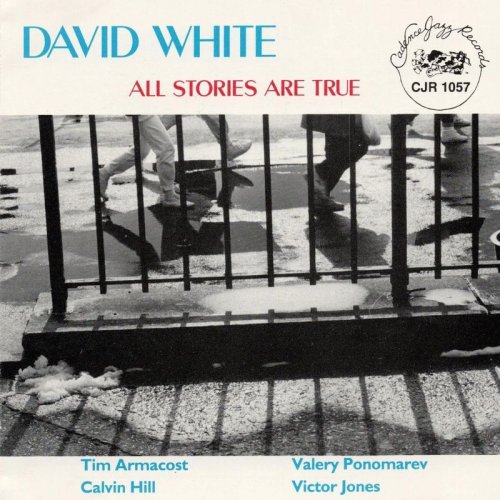
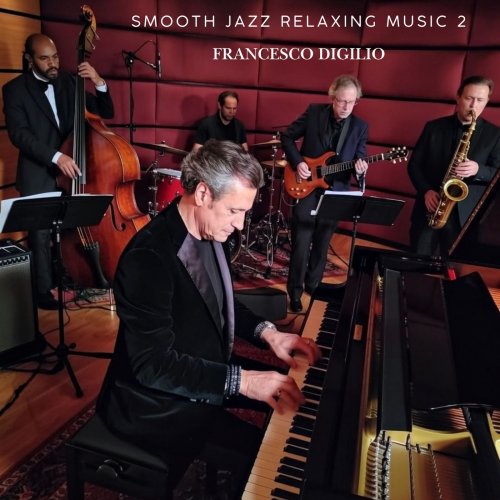

![Gonzalo Mazzutti - Lo que nos une (2026) [Hi-Res] Gonzalo Mazzutti - Lo que nos une (2026) [Hi-Res]](https://www.dibpic.com/uploads/posts/2026-02/1771563491_cover.jpg)
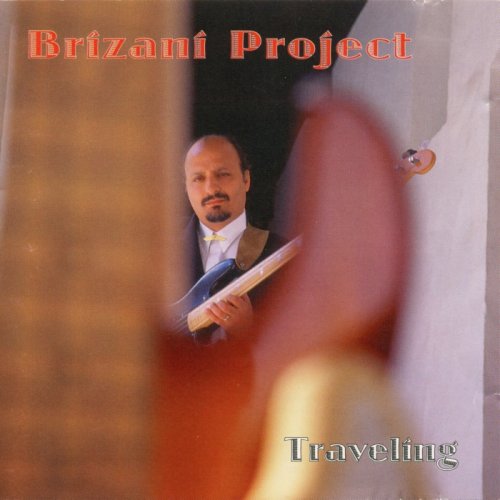
![Magda Mayas' Filamental - Murmur (2026) [Hi-Res] Magda Mayas' Filamental - Murmur (2026) [Hi-Res]](https://www.dibpic.com/uploads/posts/2026-02/1771663724_i3cjtptz4ae2l_600.jpg)